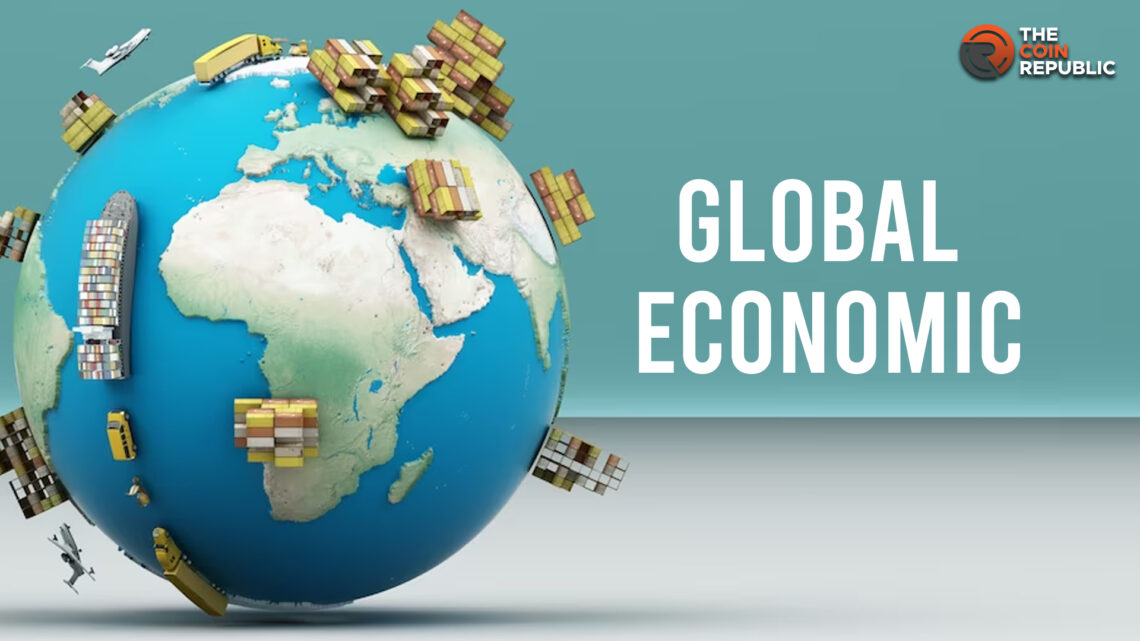- 1 Technology and demographics have created complex policy trade-offs between growth, jobs, and inequality.
- 2 Climate change amplifies risks and demands urgent, fair, collaborative adaptation.
- 3 Financial interconnectedness risks wider crises, but global coordination can build resilience.
Today’s global economy contends with various formidable disruptions. They make policy dilemmas for countries worldwide. Technological advances, demographic shifts, financial crises, climate change impacts are complex and interlinked challenges. As economic shocks transmit across borders, instability anywhere threatens stability everywhere.
International institutions like the IMF, World Bank, and WTO are critical for spurring cooperation. Their policy expertise and financing can help vulnerable nations. Those countries can build resilience and navigate uncertainty. Understanding the key global economic crosscurrents informs smart policy choices. Evidence-based reforms and inclusive international collaboration are essential. They help in overcoming shared challenges and charting a sustainable growth course worldwide.
Technological Disruption
The speed of technological change keeps increasing. It is reshaping industries and companies. Cutting-edge innovations like artificial intelligence, robotics, and automation disrupt traditional business models. While these technologies boost productivity and efficiency, their impacts also need adaptation.
Societies must prepare policies to help workers transition and ensure the benefits are shared. Managing the growing pace of technological change will be crucial. It will sustain economic prosperity. While boosting productivity and efficiency, these disruptions threaten jobs. Routine manual and clerical roles may vanish.
Developing nations reliant on manufacturing and agriculture face particular risks of technology-induced unemployment. Insufficient retraining and transition support can leave many workers stranded, fueling unrest. Policy responses like educational reforms, digital skill programs, and workforce help schemes are imperative.
Automation and digitization confer an advantage to skilled workers over the less educated. This drives income and wealth divergence, exacerbating inequality. Tax and redistribution policies must counter the uneven gains from technology. International cooperation is also needed to align technology standards and governance frameworks.
Demographic Shifts
Shifting global demographics creates daunting fiscal challenges. Declining birth rates and aging populations in developed nations are major challenges. A diminishing tax base strains pension and healthcare systems. Japan and much of Europe are already grappling with this issue.
Immigration can mitigate demographic headwinds by expanding the workforce and tax revenues. However, immigration creates cultural assimilation challenges, and economic pressures can spark a societal backlash in many nations. Policymakers have to pursue sustainable immigration balanced with domestic social cohesion.
Developing nations like India enjoy demographic dividends from a growing working-age population. But realizing this benefit requires major investments in education, healthcare, and gender equality. State capacity and governance must keep pace with population needs.
Financial Market Volatility
Integrated global financial systems enable the rapid transmission of financial shocks across borders. Crises often snowball into capital flight. The currency collapses for vulnerable emerging economies. Cascading economic devastation was witnessed during the 1997 Asian financial crisis. It underscored the systemic risks.
Debt also looms as a lurking threat, Sri Lanka is case in point. Loose monetary policies encouraged excessive sovereign borrowing across developing nations. With interest rates rising, the debt burden is becoming unmanageable. Any debt defaults risk triggering wider financial contagion.
Regulatory bodies must enhance banking supervision and crisis preparedness in emerging markets. Exchange rate flexibility and enough foreign reserves help cushion against speculative attacks. The global community needs robust mechanisms to restructure unsustainable debt. It’s essential to restore economic stability.
Climate Change Impact
The intensifying climate crisis will exert a heavy economic toll. Ecosystem damage and disasters like droughts and flooding can also make things worse. The destruction of infrastructure and disruption of agriculture threaten livelihoods worldwide. But the costs are borne by poorer nations with lower resilience.
Adapting to climate change requires tremendous investment in resilient infrastructure and agriculture. Forecasting models and emergency preparedness can also be useful. Developed nations bear historic responsibility for emissions. Their contributions to climate financing remain inadequate. Global cooperation mechanisms like the U.N. Green Climate Fund must expand.
Building climate resilience also demands technology transfers. Knowledge sharing between developed and developing countries is also essential. Pursuing green growth through renewable energy investments brings environmental and economic dividends. Climate impacts amplify pre-existing development challenges. It can spur destabilizing conflict over scarce resources.
The Vital Role of International Institutions
In the interconnected 21st-century economy, amplifying risks requires collective action. The top financial organizations provide vital economic policies for financial stability and development.
IMF emergency loans and debt restructuring allow distressed economies to recover faster. Its surveillance alerts members to emerging vulnerabilities. Developmental aid and knowledge sharing are necessary. The IMF and World Bank should also support building resilience. Growth capacity should boost in the developing world.
The WTO supports rules-based free trade. It is crucial for global commerce and living standards. Ongoing reforms seek to promote fair growth and sustainability. Regional development banks also offer targeted financing for infrastructure and social needs.
Cooperation hinges on international institutions reflecting the evolving global order. They should also consider the priorities of emerging economies. Governance structures and voting powers need to adapt to changing economic realities. Coordinated policy action across monetary, fiscal, trade, technology, and climate fronts is indispensable for tackling shared challenges.
Here are some of the top priorities that should be addressed for the current economic threats:
- -Investing in human capital through education, retraining, upskilling, and employment programs.
- -Boosting healthcare and social safety nets to support aging populations.
- -Upgrading infrastructure to capitalize on new technologies.
- -Implementing prudent fiscal and monetary policies to rein in inflation.
- -Coordinating international debt relief and financial stimulus where needed.
Summary
Leaders must maintain a global perspective as they tackle pressing domestic economic challenges. Policy decisions in our interconnected world create cross-border spillovers and consequences. Evidence-based policymaking requires recognizing how local issues fit into the broader international landscape.
Pursuing national interests is understandable. It should align with cooperation on shared global risks. By working with foresight, the international community can prevent destabilizing impacts. It can build a sustainable growth path. Inclusive international cooperation should be grounded in data. Thus, nations can navigate uncertainty and advance mutual prosperity.

Adarsh Singh is a true connoisseur of Defi and Blockchain technologies, who left his job at a “Big 4” multinational finance firm to pursue crypto and NFT trading full-time. He has a strong background in finance, with MBA from a prestigious B-school. He delves deep into these innovative fields, unraveling their intricacies. Uncovering hidden gems, be it coins, tokens or NFTs, is his expertise. NFTs drive deep interest for him, and his creative analysis of NFTs opens up engaging narratives. He strives to bring decentralized digital assets accessible to the masses.


 Home
Home News
News







